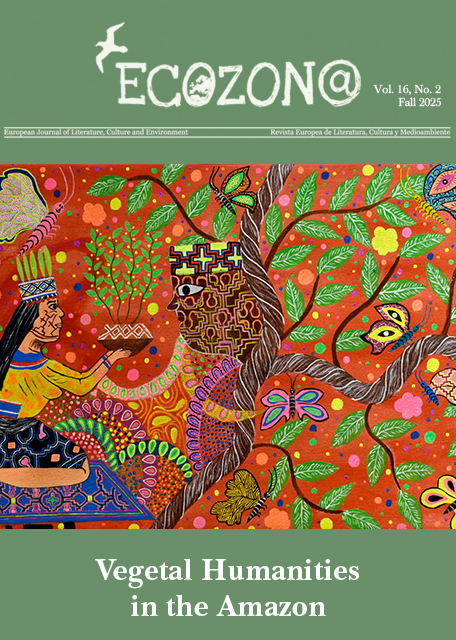Contemporary British Georgic Writing
DOI:
https://doi.org/10.37536/ECOZONA.2021.12.2.3828Parole chiave:
Virgil, eco-georgic, instructional georgic, personal memoir, future-oriented georgicAbstract
Do we need the modish term “eco-georgics” to help us discover the unsentimental, holistic, healing qualities in the best georgic writing of the Anthropocene? When were georgics not “eco”? Is there a “post-georgic” in some forms of contemporary literature that seem to reject husbandry altogether, such as rewilding texts? Do such categories serve any purpose to readers and critics in the Anthropocene? This essay argues that such careful distinctions do, indeed, matter more than ever now as we reconsider our sustainable options in husbandry, land-management and what sustainability might look like, as it is represented and explored in our poetry, fiction and non-fiction georgic literature in Britain at the present. One might expect contemporary georgic writing to exemplify the environmental engagement implied in the term “eco-georgic”. In fact, contemporary georgic can be environmentally radical or apparently indirect in its implications for sustainability. It remains as diverse, hybrid and composted in the past as Virgil’s original text. This essay begins by considering definitions, with reference to Virgil’s founding Latin text, begun in the third decade BCE, the Georgics. It recognises Laura Sayre’s complaint that ecocriticism has neglected georgic writing, and argues that this is certainly true for contemporary British georgic texts. Briefly, attention is drawn to five volumes of georgic poetry before the essay focuses on contemporary georgic fiction and non-fiction. The novels of Cynan Jones, Tom Bullough, Marie-Elsa Bragg and Tim Pears are discussed and contrasted with one by Melissa Harrison that might mistakenly be thought of as georgic. Three categories of non-fiction are identified and discussed with examples: instructional georgic, personal memoir and future-oriented georgic. Consideration of the latter leads to conclusions about their inevitable overlaps and a final call for a radical twenty-first century animism to embed enchantment into contemporary georgic writing
Downloads
##submission.downloads##
Pubblicato
Fascicolo
Sezione
Licenza
Authors who publish with this journal agree to the following terms:
a) Authors retain copyright and grant the journal right of first publication with the work simultaneously licensed under a Creative Commons Attribution License that allows others to share the work with an acknowledgement of the work's authorship and initial publication in this journal (CC BY-NC for articles and CC BY-NC-ND for creative work, unless author requests otherwise.
b) Authors are able to enter into separate, additional contractual arrangements for the non-exclusive distribution of the journal's published version of the work (e.g., post it to an institutional repository or publish it in a book), with an acknowledgement of its initial publication in this journal.
c) Authors are permitted and encouraged to post their work online (e.g., in institutional repositories or on their website) prior to and during the submission process, as it can lead to productive exchanges, as well as earlier and greater citation of published work (See The Effect of Open Access).










